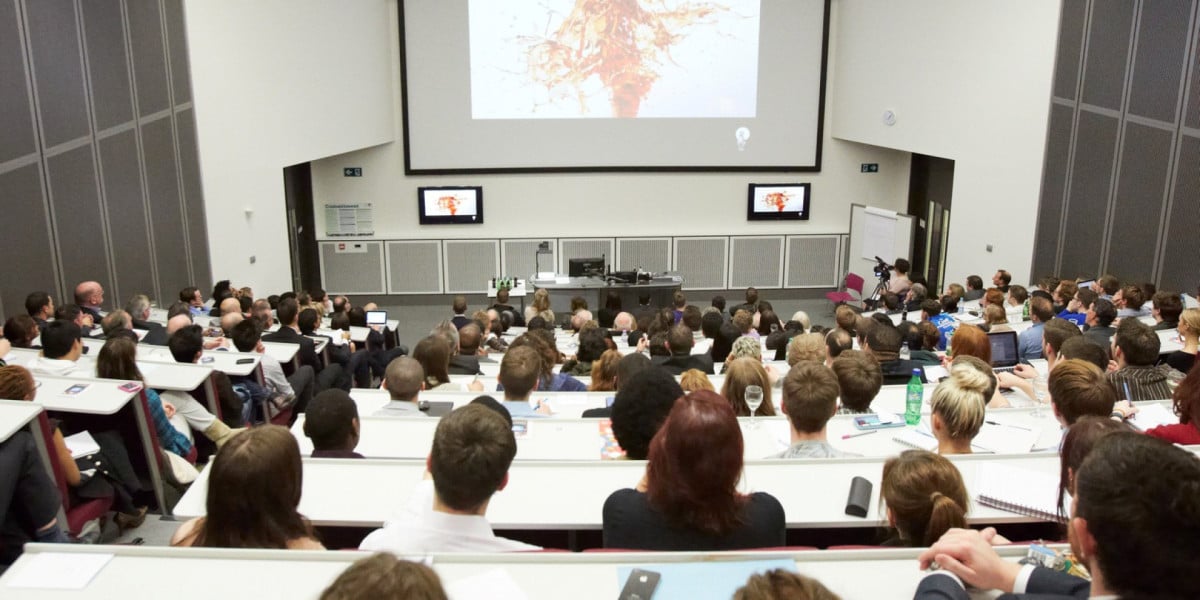
Teaching Finance for wicked problems
How systems thinking reshaped student analysis and legitimised ambiguity in the finance classroom.
Chartered ABS Annual Membership Survey 2024: Universities’ finances exposed by falling business student enrolments

The UK’s business schools, on which universities rely for the largest share of students and fee income, have reported significant declines in both domestic and international student enrolments for the new academic year.
The most popular subject at university, business students account for a third of all international students studying in the UK, and a sixth of all university students overall.
However, the results from the Chartered Association of Business Schools annual membership survey show that three-quarters (75%) of business school Deans have reported lower international student enrolments than last year, of which 50% were significantly lower. Only 8% of schools saw an increase in postgraduate international students this term.
Domestically there is more divergence, with over a third (36%) of schools reporting a decline in home students, 28% reporting no change, and 37% seeing an increase.
Looking ahead, nearly half (44%) of Deans expect enrolments in January 2025 to fall compared with last January’s intake, with a fifth expecting a significant decline.
The fees from business students, in particular international students, are vital to university finances. 100% of responding schools reported that their university’s finances were to some extent reliant on their ability to recruit international postgraduate business students. On average 60% of the net income generated by business schools is contributed to central university budgets.
The survey results demonstrate the financial challenges the sector faces, with over a third (36%) of responding business schools reporting a decline in income in the financial year 2023/24. This is twice the proportion of schools recording a decrease than last year. 47% said that income had been lower than expected, and 51% expect to see a further decline in this financial year, 20% of which expect a significant decrease.
Business school leaders point to government immigration policy introduced in early 2024 as a significant cause. 84% of respondents attributed decreases in their international student recruitment to the ban on visas for dependents of students.
The survey shows business schools are supportive of a robust student immigration system, and are working to keep their operating costs down. The majority of respondents (53%) welcomed tighter regulation of international student recruitment agents as proposed by the Migration Advisory Committee in its rapid review of the Graduate Route. And just under half of the schools reported that expenditure had decreased in the past year, with 63% expecting expenditure to be lower again in the current financial year.
Business schools continue to play a significant role in widening participation and supporting social mobility. The survey reveals that on average a fifth of their domestic students in 2023/24 were recorded as having received free school meals prior to university. 57% of business schools reported an increase in the proportion of these students over the last 5 years.
Professor Stewart Robinson, Chair of the Chartered ABS and Dean of Newcastle University Business School, said:
“These results reveal the perilous financial situation many universities face as the curbs on international students drastically impact on our business schools’ ability to attract bright fee-paying students from around the world. UK higher education is one of our most successful exports, with the annual £42bn economic value of international students* putting the university sector ahead of the export value of the UK’s car manufacturing and telecoms & IT sectors**. Business school students account for a third of UK universities’ international students but are in rapid decline as the restrictions bite. Without them the contribution business schools make to business, society and local economies are in jeopardy.
“We welcome the new government’s positive narrative around the value of universities and international students. However, with declining student numbers compounding a multitude of financial challenges facing universities we encourage the Government to consider options that enable carefully managed migration and a vibrant higher education sector. For example, an exemption from the ban on visas for dependents of mid-career ‘post-experience’ students would help to remove barriers to enrolling on the UK’s world-class Master’s and MBA programmes, a vital export for our economy”
Download the full report: Chartered ABS Annual Membership Survey 2024
References:
** UK government statistics on trade: https://www.gov.uk/government/statistics/uk-trade-in-numbers/uk-trade-in-numbers-web-version
